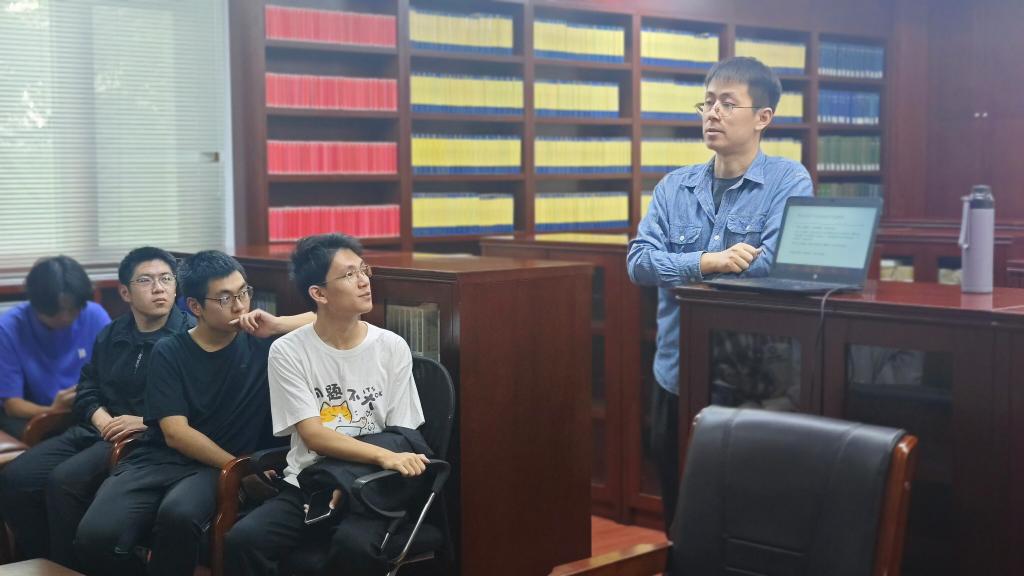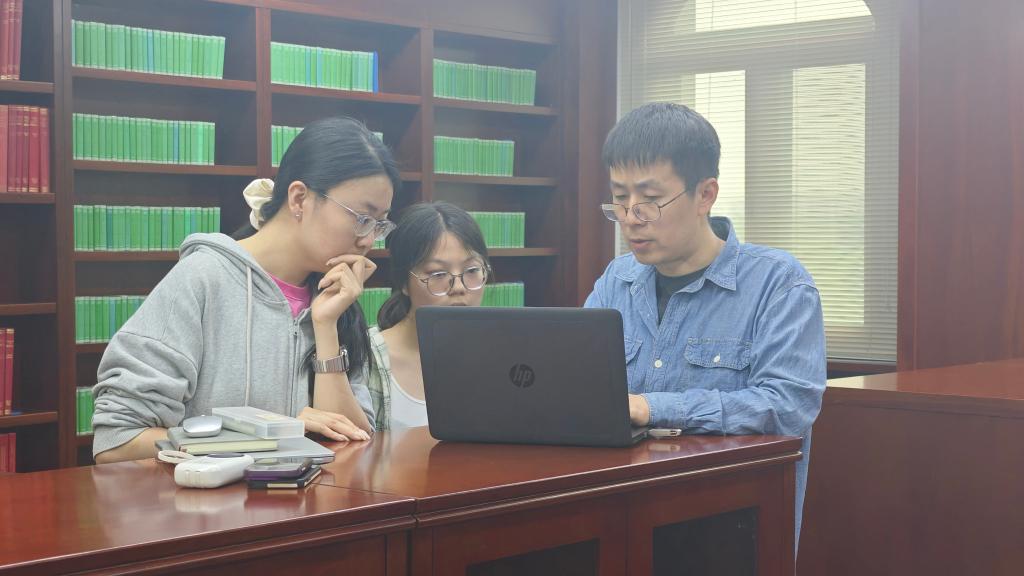On the afternoon of May 22, 2025,Dr.Guo Chao of IEC was invited to hold a workshop for undergraduate and graduate students majoring in world history on "British Catholics’ Obtaining Equal Civil Rights in the Early 19th Century" in the library of IEC.

Dr. Guo initially addressed the historical trajectory of Catholicism in England since the sixteenth century. The pivotal moment in this narrative occurred in 1534, when King Henry VIII initiated the English Reformation and established the Anglican Church as the state church. This act set the stage for an enduring conflict between Catholics and Anglicans. Over the subsequent two centuries, Catholics experienced a gradual yet profound erosion of their civil rights. By the late eighteenth century, despite the promulgation of certain tolerant legislation by the British authorities, Catholics remained effectively excluded from Parliament and high-ranking public offices. In the early nineteenth century, the union of England and Ireland further complicated matters. The Anglican Church was subsequently designated as the state church of Ireland, exacerbating tensions. A significant portion of the Irish Catholic population, driven by their quest for equal civil rights, mounted a sustained social campaign to compel the British government to address their grievances. They established Catholic associations to advocate for “Catholic Emancipation,” exerting considerable influence over parliamentary elections throughout the United Kingdom. This activity was perceived as a serious challenge to British governance in Ireland. Eventually, in 1829, the British government passed the Roman Catholic Relief Act 1829, which abolished the longstanding legal restrictions against Catholics, thereby conferring upon them essentially equal civil rights.
In the early nineteenth century, as British Catholics sought to secure their civil rights, various political factions and interest groups were actively engaged in this process. These included the Whigs, the Tory party (which had split into conservative and liberal factions), and the Irish Catholic community. Dr. Guo Chao provided an overview of the methodologies for obtaining resources related to this topic and its key figures. He recommended several valuable reference works, such as the Encyclopedia Britannica and the Catholic Encyclopedia. He also highlighted important historical sources, including parliamentary documents from nineteenth-century Britain, as well as contemporary literature—such as memos, collections of correspondence, and memoirs of significant political figures.
Among them, Guo focused on Hansard Parliamentary Debates. It began as the weekly newspaper Cobbett’s Weekly Political Register, founded by William Cobbett, a proponent of parliamentary reform, and later changed to Cobbett's Parliamentary Debates. In 1812, Thomas Curson Hansard took over the job. Hansard, including the records of the debates of the upper and lower houses of Parliament, relevant reports produced by various committees and the final decrees of the Parliament, is an authoritative record of the debates of the British Parliament, and with high value for the study of British history and politics since the 19th century.

Furthermore, Dr. Guo Chao outlined approaches for accessing English electronic resources related to the study of world history. He concluded his presentation by addressing questions concerning the medieval disputes between church and state, the modern conflicts between Anglicanism and Catholicism, and offered guidance on navigating challenges related to locating materials and selecting research topics.

